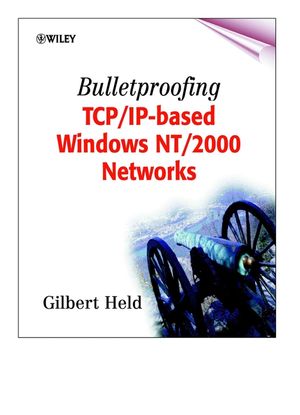Bulletproofing TCP/IP-Based Windows NT/2000 NetworksISBN: 978-0-471-49507-9
Paperback
300 pages
June 2001
 This is a Print-on-Demand title. It will be printed specifically to fill your order. Please allow an additional 15-20 days delivery time. The book is not returnable.
|
||||||
Find out about TCP/IP-based network attack methods and threats to Windows NT/2000 computers and the preventive measures you can use to protect your infrastructure. Bulletproofing TCP/IP-based Windows NT/2000 Networks details the use of router access lists, firewalls, virus scanners and encryption. It includes examples of the configuration of hardware and software to prevent or minimize the effect of a wide range of communications-based attacks against TCP/IP networks and Windows NT/2000 hosts connected to such networks.
- Covers how TCP/IP operates and how TCP/IP attacks occur.
- Detailed coverage on how to secure both TCP/IP networks and the Windows NT/2000- host on such networks against different attack methods.
- Describes a new attack method, 'script-form attack', which could cause a company financial problems, and its prevention.
- Uses practical real-world examples of methods used to block potential attacks.
Aimed at TCP/IP network managers, LAN admiistrators, Windows NT/2000 administrators and network professionals. It can also be used for high level undergraduate and graduate electrical engineering and computer science courses covering network security.
- Covers how TCP/IP operates and how TCP/IP attacks occur.
- Detailed coverage on how to secure both TCP/IP networks and the Windows NT/2000- host on such networks against different attack methods.
- Describes a new attack method, 'script-form attack', which could cause a company financial problems, and its prevention.
- Uses practical real-world examples of methods used to block potential attacks.
Aimed at TCP/IP network managers, LAN admiistrators, Windows NT/2000 administrators and network professionals. It can also be used for high level undergraduate and graduate electrical engineering and computer science courses covering network security.



